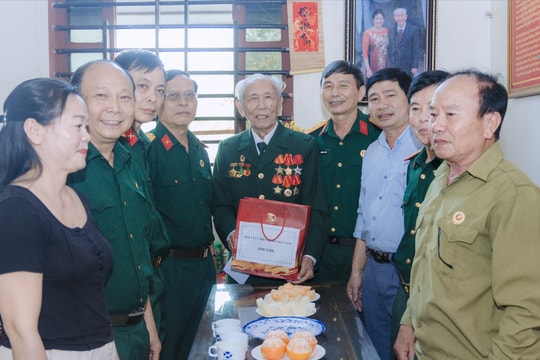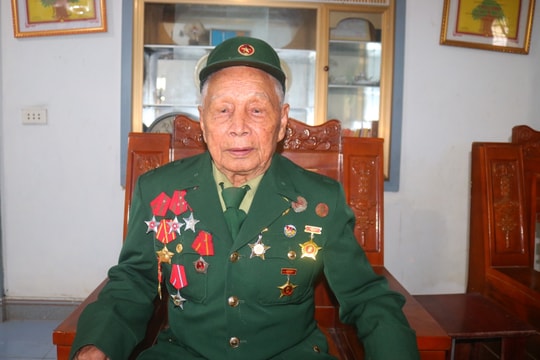Nghe An veteran talks about memories in Dien Bien battlefield
(Baonghean.vn) - The book "Dien Bien Phu Soldiers of Dien Chau" (published in 2009) is truly a valuable document of Dien Bien soldiers, helping future generations better understand the hardships, bravery and glory of those who made the victory.
The book’s content is quite rich, with sources of information about the Dien Bien Phu Victory in the press; and the affection of later generations for the land of Dien Bien. In particular, I was really impressed with the content of “Dien Bien Memories”, which are notes about unforgettable memories on the march and battle of those who directly participated in the campaign.
If separated, these memories would be “fragments”, but when arranged in a series, they would create a vivid picture of the fight and victory of our army and people in the Dien Bien Phu battlefield. Each story is a stroke in a colorful picture, attracting readers to find a glorious and heroic time.
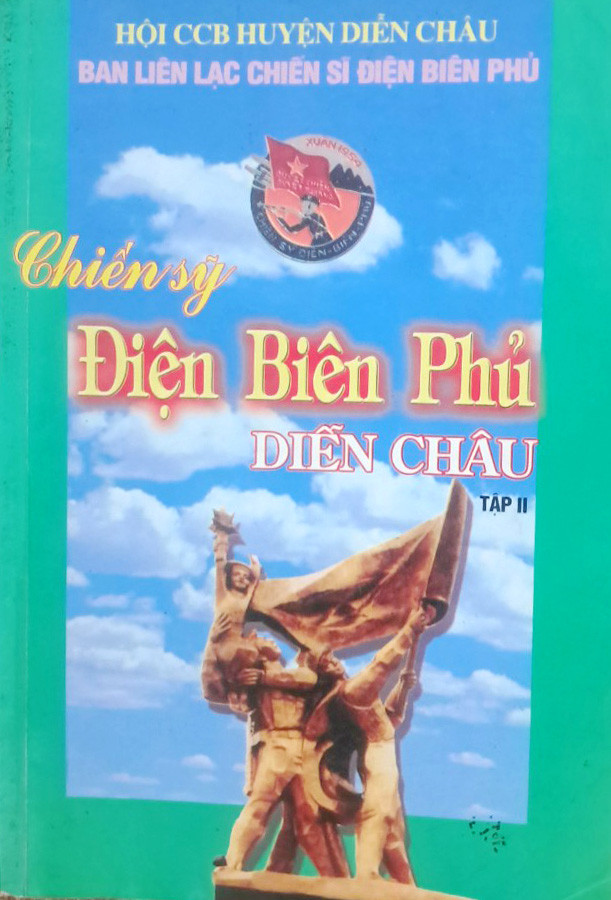
In this book, veteran Tran Xuan Chau (Dien Hanh commune) has an article called “Long March…”, recounting the story of the march from Nghe An to Dien Bien with many hardships, dangers but also full of joy. Our troops marched on foot for nearly thousands of kilometers, crossing high passes, deep streams, deep abysses, and cat-ear rocks, the army still climbed the slopes and rushed forward.
The young soldiers marched, told stories, read poems and sang enthusiastically: "The road to the Northwest is far away/Difficulties must be overcome to overcome dangerous passes/The road to the Northwest is bumpy/White Bauhinia flowers bloom all over the valleys and hills/I love you so much, Noong/Tomorrow victory will come to us".
Veteran Le Viet Hai (Dien Lam commune) still remembers the night he crossed Au Lau wharf (Yen Bai), the villagers brought hot fresh tea and steaming boiled cassava to invite the troops to stop. Then the bamboo boats crossed the river, when saying goodbye, the boatwoman softly said: "Have a safe trip, when you come back, come find me for the boat!"
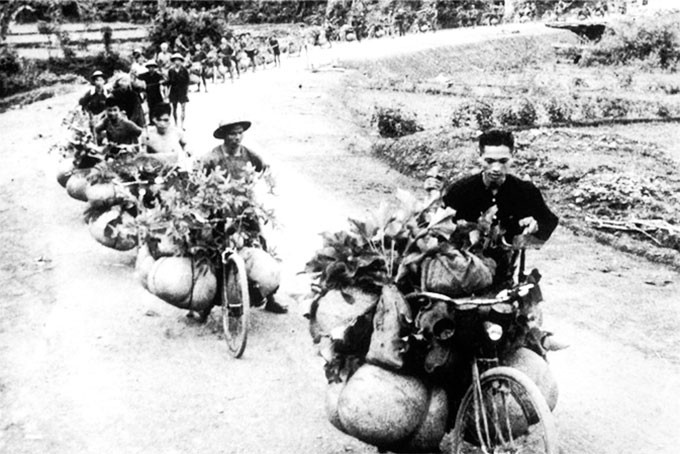
Continuing the march, in the dark night, hundreds of soldiers tried their best to pull the heavy cannons, step by step, over the high mountains. The cannons were camouflaged with leaves, artillerymen, engineers, and infantrymen tried their best to follow the cheers, pulling the cannons in step by step. Thinking about the time to open fire on the central area of the general attack, they were anxious and wished to stay healthy to witness the important historical moment.
In the article “Don’t let them escape”, veteran Quang Phiet (Dien Hoa commune) recounts the moment our army launched a general attack on the enemy command center in Muong Thanh on the afternoon of May 7, 1954.
Our army was as strong as a broken dam, wherever we attacked the enemy raised the white flag of surrender. In the entire Muong Thanh field, the enemy's white flags, which had been prepared in advance, rose from the ground one after another like white mourning bands under their downcast, sad faces...
At Hong Cum, after the enemy's return fire, our army's 105mm artillery fire from the battlefields immediately focused on this stronghold. Their bunkers were blown open, smoke and fire filled the air, the enemy screamed in panic and called for each other to run away. The memory of the last battle on the old battlefield was forever engraved in the soldiers' memories - the memory of a time of youth fighting.
The Dien Bien Phu battlefield was extremely fierce, the war was always in a situation of losing or winning. But through the song “Bunch of Kindness” by veteran Nguyen Hung Tan (Dien Hanh commune), we will see the beauty of kindness of Vietnamese soldiers.
After a battle, Mr. Tan's unit rested, cleaned the guns and ammunition to prepare for the next battle. That afternoon, just after installing the barrel into the gun chamber, Mr. Tan was aiming at the medium-sized rifle in his hand when suddenly an enemy soldier appeared outside the bunker door.
The enemy's head and face were wrapped in bandages, he leaned over and crawled on his hands in the flooded trench. A soldier named Quac came out from the side of the tunnel, squinted at him, then raised his chin and asked loudly in English. The enemy answered that he was an Algerian, and was in Korea but was forced to fight here.
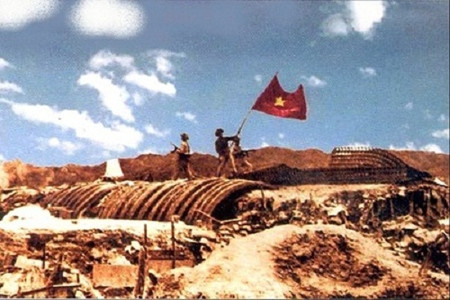
Some soldiers glared and were about to hit him with their rifle butts, but Quac stopped them, saying he was a poor man who had been forced to become a mercenary. Most people thought he was more pitiful than hateful.
Knowing that it was very hungry, our soldiers gave it a handful of rice. Its eyes were wet with tears as it bent down to chew the rice deliciously. After eating, it looked at everyone as if to say thank you for the friendly and kind rice.
The book “Dien Bien Phu Soldiers of Dien Chau” contains the pride of more than 600 cadres, soldiers, and youth volunteers of this rural area who directly participated in the Dien Bien Phu Campaign. Through the book, they recorded what they did, contributed their strength and blood to the victory to educate the next generations./.

![[Infographics] Chi tiết Lễ diễu binh, diễu hành kỷ niệm 70 năm Chiến thắng Điện Biên Phủ [Infographics] Chi tiết Lễ diễu binh, diễu hành kỷ niệm 70 năm Chiến thắng Điện Biên Phủ](https://bna.1cdn.vn/thumbs/540x360/2024/04/08/uploaded-huuquanbna-2024_04_08-_duyet-binh-ky-niem-70-nam-chien-thang-dbp-469.jpg)
